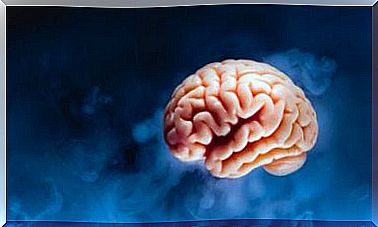How To Cultivate Inspiration

The important thing in cultivating inspiration is that it is not only a skill that affects intellectual activity, but that has an effect on all aspects of life. Inspiration is a state in which cognitive, emotional, and will-power aspects come together. It generates a powerful feeling of well-being and is decisive in the creative processes.
It is not easy to define exactly what inspiration is. The Larousse dictionary defines it as “Interior movement, impulse which leads to do, to suggest or to advise some action”, or as “Enthusiasm, creative breath which animates the writer, the artist, the researcher”. Cultivating inspiration would therefore be something like creating the right conditions for the “inner movement” or “enthusiasm” these definitions speak of.
From an etymological point of view, the definition is beautiful, but it is not very concrete either. In this area, the inspiration would come to be something like: “to breathe the information of life”. All this lack of precision leads us to think that it is a complex, deep and wonderful phenomenon. This is why cultivating inspiration is also a fact of transcendence. But how do you get there? Here are some ideas.
Inspiration, a wonderful phenomenon
Inspiration is a state in which we experience some kind of revelation about an essential aspect of life or of reality as such. It is an intellectual phenomenon because it involves deep understanding. But it also implies a special joy, which is expressed in the conviction and the desire or passion to perform a certain action.
It can be said that inspiration gives us some of the happiest times of our existence. It is a light and expansive force that opens the mind and the heart. When we are inspired, we feel a direct and real connection with the entire universe. The discomfort disappears. We feel a kind of happy peace.
Neuroscientists Marcos Jung-Beeman and Edward Bowden, from Northwestern University, and John Kounios, from Drexel University, have done some interesting studies on this topic. They tell us that by means of magnetic resonance imaging (MRI), it was possible to verify that there is a part of the brain which, literally, is illuminated in certain moments of revelation or epiphany. It corresponds to an area of the right temporal lobe.

Inspiration and motivation
Inspiration is often confused with motivation, but they are two different realities. Motivation is a force that pushes us to develop certain actions in order to obtain a specific benefit. Also, of course, to avoid any damage or harm.
In the end, motivation comes from a seal imprinted on human nature: to seek pleasure and avoid pain. We are motivated to do something because we start from the idea that it will get us what we want or prevent something negative from happening to us.
The inspiration goes much further. In this, pleasure and pain take a back seat. It is such a powerful force that it is able to accept pain without a problem because the goal transcends it. We are not looking for a specific benefit either, but for greater fullness. This is how it feels to those who give their lives for freedom or those who are able to endure any humiliation in the name of a goal or cause.
Cultivate inspiration
Cultivating inspiration is a process that takes a lot of effort and consistency. However, there are ways to maintain this state and eventually achieve it. The first of these paths is meditation. Meditation is absolutely proven to affect the way the brain works. This facilitates the creative processes, which in turn are the result of inspiration.

Reading fictional literary works and practicing art are other ways to cultivate inspiration. All these tasks break with the usual patterns and ultimately lead to the construction of new perspectives. In turn, these new points of view, sooner or later, lead to those profound revelations that characterize states of inspiration.
Adequate rest and the ability to sometimes know how to cut off certain realities are also key factors in cultivating inspiration. Rest involves getting good sleep and periodically oxygenating the mind. Cutting yourself off from certain realities is about changing the physical and mental parameters when you feel blocked. Take an indefinite parenthesis, to resume later. All of this facilitates those inspiring moments that have the capacity to change our lives.









